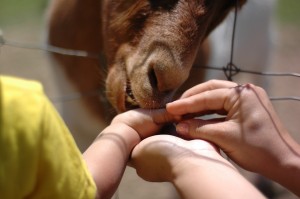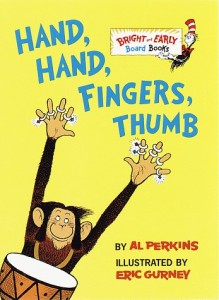 From my good friend Kerry comes word of this front-page Key West Citizen report that the oil is, as feared, closing in on the southern Gulf. According to the Citizen:
From my good friend Kerry comes word of this front-page Key West Citizen report that the oil is, as feared, closing in on the southern Gulf. According to the Citizen:
Fishing is banned in parts of the Florida Keys National Marine Sanctuary west of the Dry Tortugas, where an oil sheen was 100 miles away and closing in on the area, federal officials declared Wednesday.
Nearly 38 percent of the Gulf of Mexico, or 88,502 square miles, is now closed to fishing because of the Deepwater Horizon oil spill, said Roy Crabtree, the National Marine Fisheries Service’s southeast regional director.
The National Oceanic and Atmospheric Administration (NOAA) expanded its fishing ban in federal waters effective at 6 p.m. after projecting the sheen would be within 50 or 60 miles of the Tortugas by Friday, Crabtree said.
In case you’ve never been to the Dry Tortugas, let me try to explain it. The picture above is of Garden Key, which was discovered by Ponce de Leon and later was home to Fort Jefferson, the hexagonal brick structure you see there. Like most forts of its kind, it was obsolete before it was finished, and so became a federal prison (Dr. Samuel Mudd was its most famous–and, during disease outbreaks, valorous–inmate). The fort itself is an amazing artifact of American cruelty (it was partially built by slave labor, and garrison/prisoner conditions there were beyond harsh) but also a wonder of ingenuity, built 70 miles west of the nearest populated island and 70 miles from fresh water, and having now withstood every test of time and weather since 1846.
But Fort Jefferson is just a squalid hut compared with the cathedral that surrounds it: the Dry Tortugas themselves. I’ve been going there, just like everyone from Key West, since I was a boy. It’s a few hours by boat, less by seaplane. Most people come for the day, but you can camp alone out there. When I interviewed Jimmy Buffett a couple years ago, he had the same memories I did (although he had, of course, his own seaplane): not just a getaway, but a glimpse at what the Keys might have looked like before they became Margaritaville.
Words, like country-calypso songs, can’t really describe what’s at stake in the Tortugas. There’s a shade of blue-green to the ocean there that I don’t think I’ve ever seen anywhere, in any painting or picture. One of my earliest memories of being in those waters was of being enveloped in school of silver minnows, thousands of them, flashing like steel, coursing like electricity, just off of Garden Key. It’s not just the minnows, or the schooling yellowtail, but also the grouper, the dolphins, the sea turtles. And above the waterline, there are days that you can barely see land on the island across from Ft. Jefferson, it’s so thick with migrating birds. It’s not just a national park, it’s frigging Pandora. And now there’s a world of sludge heading for it, about to do what it has done all along the Lousiana coast: choke the water, starve the fish, kill the birds.
The thing that hunters and fishermen and conservationists all know is that nature is, beyond its own intrinsic value, an heirloom, something passed from generation to generation. I would be a different person if I didn’t have the chance to grow up with moments of awe like I’ve had swimming in the Dry Tortugas. It’s something I desperately wanted to have my children experience. We live in New York City, but I hope the soul of our family stays in the Keys. The times that we’ve been able to take the kids out kayaking in the Mud Keys, fishing the backcountry around Jewfish Basin or looking for sand dollars at Snipe Point: that’s not only a good time. That’s heritage. It’s one of the few truly good things I’m sure I can offer as a parent.
And so, yeah, I’m incredibly pissed. In the annals of corrupt profiteering, gambling with people’s mortgages now seems tame compared with gambling away the last clean reef in our country. The AP reports helpfully that BP is likely to survive this spill. Well, bully for them. And as for their stricken stockholders, well, there’s a reason why we have green mutual funds and other environmentally-minded investment portfolios. The opposite of “doing well by doing good” is “doing poorly by doing bad”. In other words, karma sure is a bitch.
The AP report gamely tried to quantify BP’s exposure. The Valdez debacle ended up costing Exxon $654 per spilled gallon of oil, in today’s dollars (Exxon, which paid $0 in federal taxes last year despite $35 billion in profit, has thrived since then). Because of liabilities to a crowded tourism and fishing industry in the Gulf, that cost-per-gallon will likely be exceeded in this spill.
But it wouldn’t matter if BP was chased into bankruptcy, if Louisiana fishermen were allowed to personally hold BP CEO Tony Hayward upside and shake the change out of his pockets. What’s about to happen in the Dry Tortugas goes beyond money, and money can’t fix it. Neither, for that matter, will anger.
Not this time around. But anger can serve a purpose, if paired with a good memory. Next time Sarah Palin says she meant Drill, Baby, Drill differently, remember and be angry. Next time a Democratic president horse-trades the environment for some unknown concession, remember and be angry. Anytime you vote, with your wallet or at the ballot, remember and, for the sake of all this beauty about to drown in oil, be angry.



